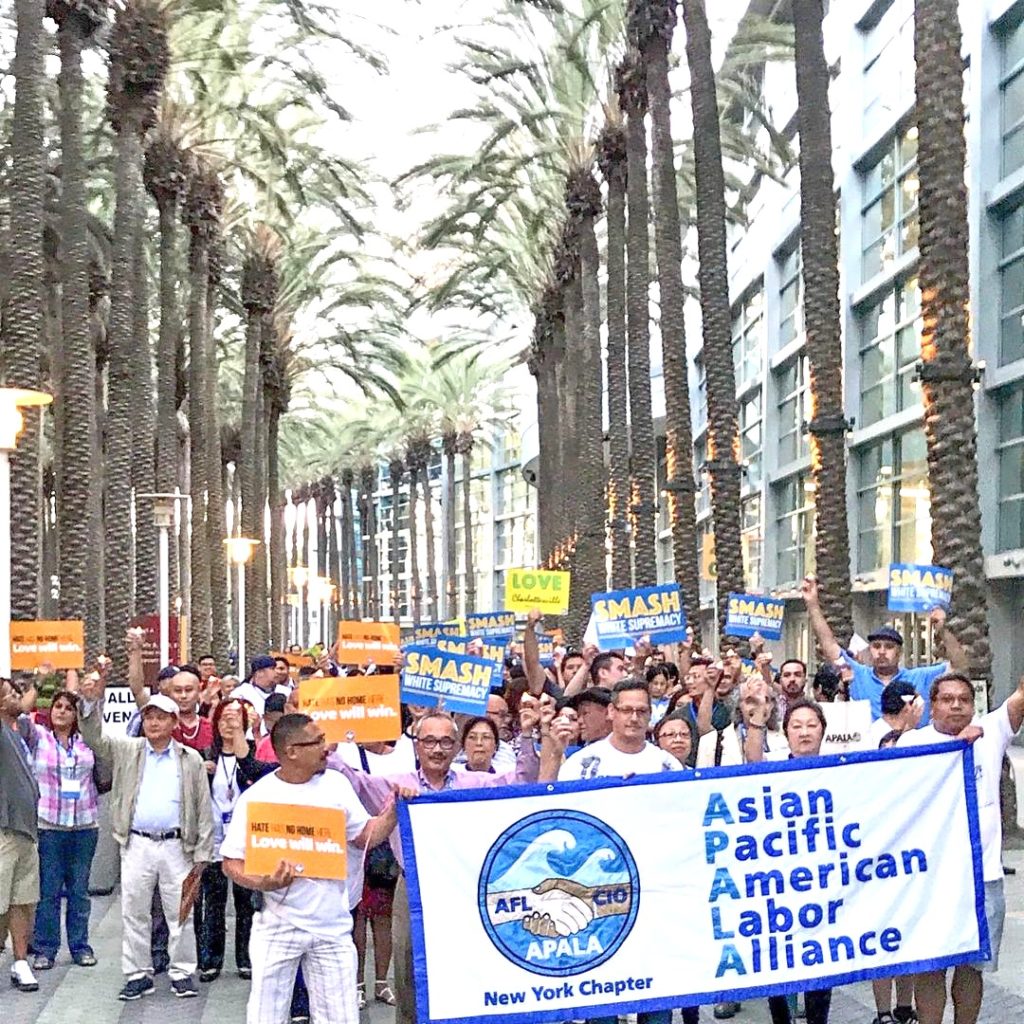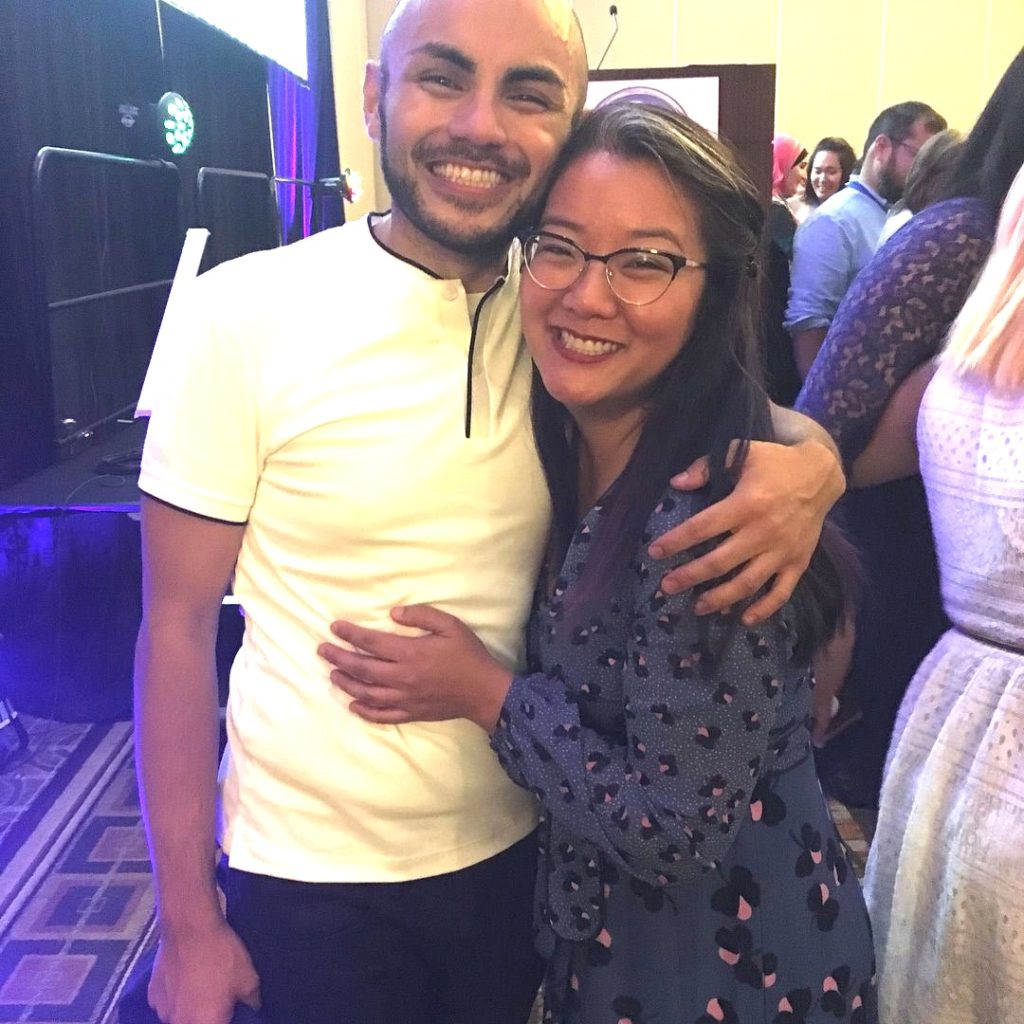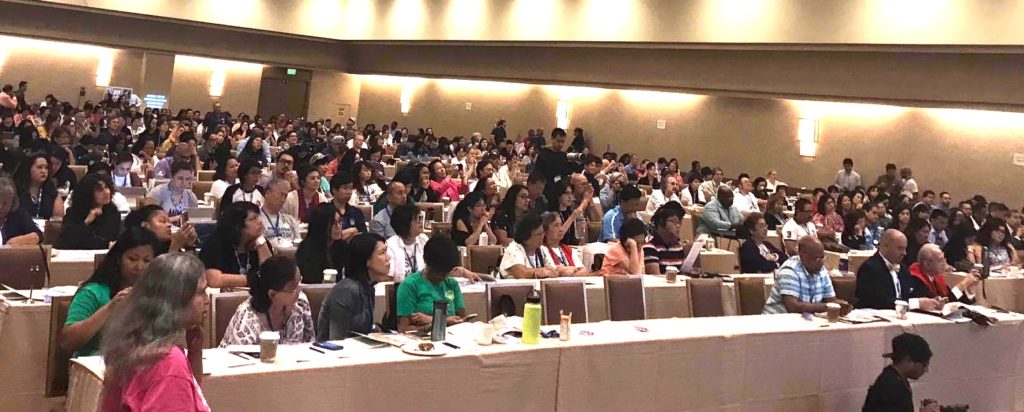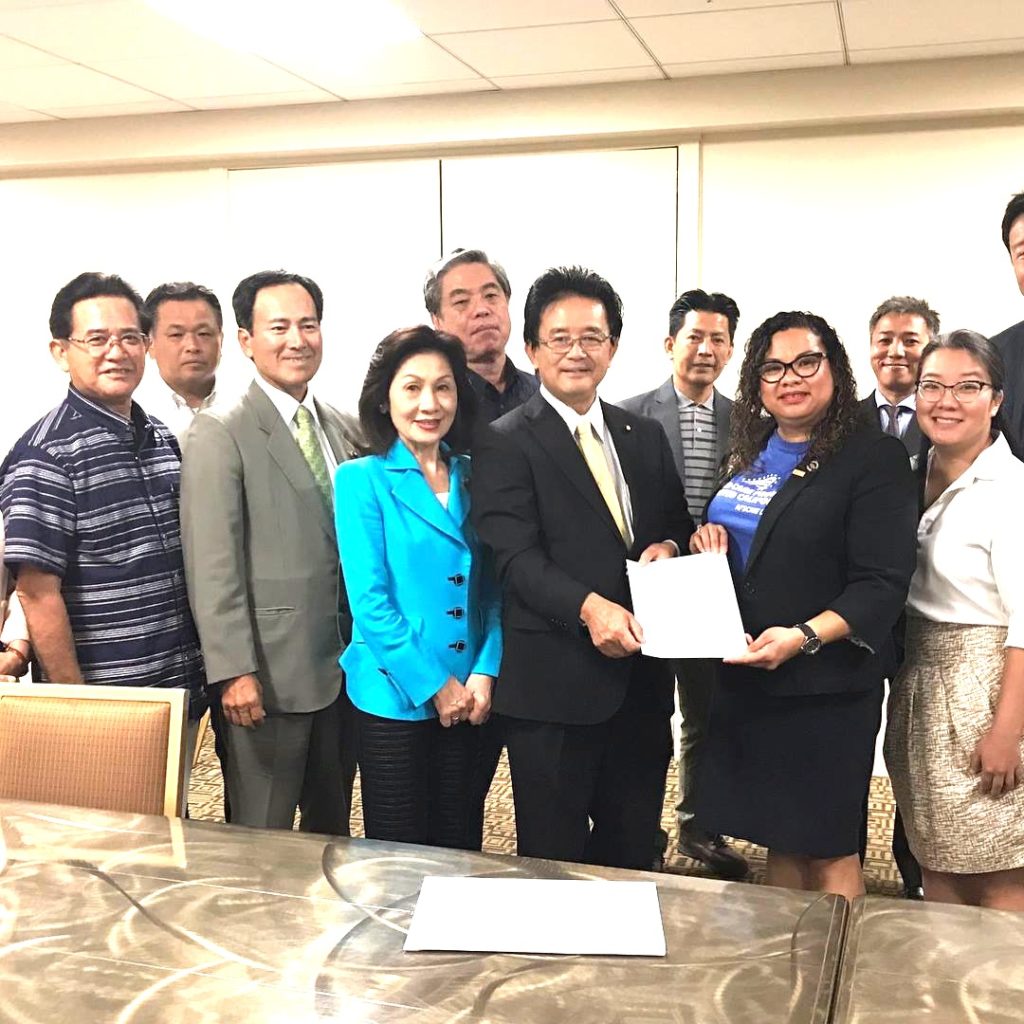Asian American, Pacific Islander unionists vow to resist Trump

APAL convention delegates in Anaheim, California march in support of Charlottesville anti-racist activists. CONTRIBUTED
ANAHEIM, California — Nearly 600 Asian American and Pacific Islander trade unionists and labor leaders vowed to resist the Trump presidency’s racism, sexism, homophobia and anti-worker and anti-immigrant policies through old-fashioned grassroots organizing as they gathered here August 19-20 for the 14th Biennial Convention of the Asian Pacific American Labor Alliance (APALA).
The convention theme, “25th Anniversary of Resistance – Organize and Fight” reflected the tenor of the delegates and community partners who joined them.
APALA President Johanna Puno Hester opened the convention by citing its venue: “Orange County (where Anaheim is located) is the epicenter of right wing attacks,” Hester said.
As one of the highest-ranking Filipino American labor leaders in the US, Hester recounted the right wing’s unsuccessful attempts to divide and destroy the powerful 100,000-member United Domestic Workers Union affiliated with AFSCME (American Federation of State and Municipal Employees) where she also serves as special assistant to the executive director.
Despite the efforts of the conservative Freedom Foundation to divide the Vietnamese community from other minority groupings in their homecare union and take away its right to collect dues through paycheck deduction, the union remained united.
Doug Moore, secretary treasurer of UDW AFSCME 3930, stated that the union and its rank and file went door to door in the community and fought back and that it continues to grow in numbers.
In a show of solidarity, APALA organized a demonstration at the convention in support for the people in Charlottesville, Virginia, who are resisting the KKK and neo-Nazis.
Kent Wong, founding member of APALA and national executive board member, recalled that when APALA was founded 25 years ago, the Los Angeles riots, in response to the acquittal of the LA police officers in the Rodney King beating, were occurring. APALA also organized a solidarity action at that founding convention to support the black community, which had suffered historically from police brutality and unfairness in the criminal justice system.
APALA’s history
APALA was founded in 1992 by six international unions including two that have large numbers of immigrant Filipino workers — Service Employees International Union (SEIU) and Hotel Employees and Restaurant Employees (HERE). It is the first and only national organization of Asian American and Pacific Islander (AAPI) workers, most of whom are union members and work with community partners to advance worker, immigrant and civil rights.
Affiliated with the AFL-CIO, APALA tries to address the workplace issues facing 660,000 Asian and Pacific Islander union members and serves as a bridge to their communities. Similar AFL-CIO organizations have been formed to serve the African American, Latino and LGBTQ union members and their communities.

Outgoing APALA Executive Director and Filipino American community leader Gregory Cendana and incoming ED Alvina Yeh. CONTRIBUTED
APALA’s membership and leadership spans the diaspora of the AAPI community and was reflected in the hundreds that attended this year’s convention, the panels and workshops presented and the issues that were taken up.
APALA has become the leadership training ground for many young people who enter the labor movement. In previous years, it has conducted Organizing Institutes to train new organizers for the labor movement. This year, pre-convention activities included organizing and political training for hundreds of young workers and rank-and-file union activists.
Likewise, younger labor leaders have brought a new perspective into the center of APALA and the broader labor movement, linking current-day issues such as the prison industrial complex and police brutality, climate change and the difficulties of undocumented students and their families.
Fightback is on
Executive Vice President of SEIU Luisa Blue, a Filipina nurse in San Francisco who started organizing fellow nurses four decades ago, spoke about labor’s plan to fight back against the current administration.
“We need a long term plan. We need to build a 21st century union and organize and mobilize in an unprecedented manner. We must work with the community to accomplish this,” stated Blue.
Lee Saunders, international president of AFSCME and the first African American AFSCME president, warned that “the Supreme Court, the right wing and the present administration want to make every state a right to work state and is targeting public sector jobs.”
The Janus vs. AFSCME case, which is certain to be heard in the conservative-dominated Supreme Court next year, seeks to “effectively eliminate unionized public sector jobs by taking away the union’s right to collect dues, making it voluntary (instead),” Saunders stated. In effect, he said, this case is “an attack on the right to make a decent living and to retire in dignity.”
AFL-CIO Executive Vice President Tefere Gebre, the first AFL-CIO Ethiopian officer, spoke of his history as a refugee who walked 93 days to the Sudanese border to find freedom. He said his experience of risking everything to come here was shared by many other immigrants and refugees. Gebre called on delegates to “not abandon our spaces for the right wing to take” and that “every day must be election day.”
Gebre and other keynote speakers stressed the importance of registering communities to vote and to take back the country through political action and voting.
Beyond Borders
Two dozen labor and peace activists from Okinawa and Japan who have been mobilizing against the proposed expansion of US military bases on the island of Okinawa joined the convention, which unanimously adopted a resolution calling for the end to US military base expansion there.
Other international guests were from Vietnam, Thailand, Malaysia and the Maldives, who shared the working conditions of people in those countries and their efforts to “fight against corporate greed.”



